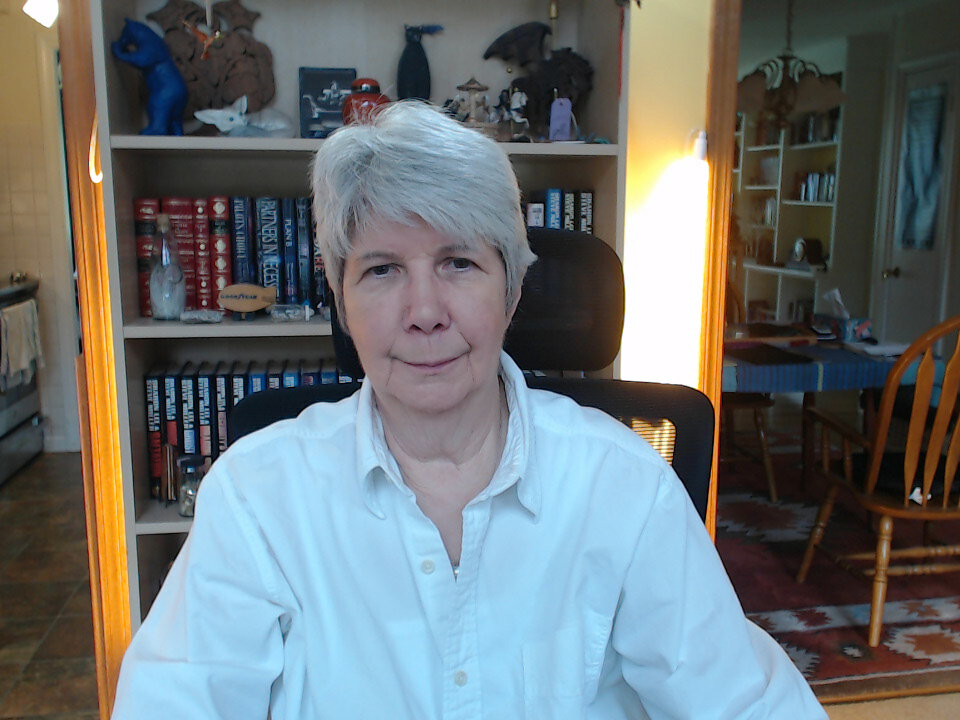For those looking for something to read, I recommend the July 10 & 17 2023 issue of The New Yorker (the one with Patience, or possibly Fortitude, reading over the young lady’s shoulder, on the cover). Not only does it include an excellent profile of Chip Delany (“Galaxy Brain: Samuel R. Delany’s pioneering science fiction,” Julian Lucas), it also includes a fascinating discussion of the upcoming Barbie movie (“Toy Story: Mattel’s movie ambitions go beyond Barbie,” Alex Barasch).
From the Barbie article, I learned the word “pre-awareness,” which is said to be the ruling aesthetic governing entertainment in this, our brave new world. The core of this philosophy is that people will not spend their time or, more importantly of course, their money on a Totally New Story. They want stories told about things of which they are already aware. Barbie, for instance, or Wolverine; this is also why we see endless remakes of old films.
Yes, there is a certain irony that this discussion would be happening in the same issue featuring Chip Delany and his work.
Anyway, as a writer, this concept of “pre-awareness” concerns me, as it also explains a few things Steve and I, as authors of a body of work set in a fictional universe, have run into with potential readers.
Potential readers are immediately worried that they have to commit to 24 books in order to read, say, the 25th. No amount of Auctorial Reassurance can convince them that they don’t have to start with Book One — which is terrifying to them. Who has the time? (I sympathize; I haven’t had the time to re-read the entirety of our back-list in — ever.) There also seems to me to be a sense that potential readers are worried they’ll . . . get it wrong, if they haven’t done all the homework.
This timidity is bolstered by long-time readers, who greet each new book with really gratifying enthusiasm, and then say, “But new readers need to start at the beginning.” This kind of ignores the fact that, in 1988, when the Very First Liaden novel, Agent of Change, hit the stands, nobody knew who Miri and Val Con were — there was no pre-awareness. Six months later, when the second Liaden novel, Conflict of Honors, was published, nobody knew who Priscilla and Shan were. And yet, the stories (apparently) made sense and left readers with a need to know more.
You see this in other spheres, as well, where newcomers to the science fiction genre are told by old hands that they have to start with the classics, going back, now, seventy years, and I gotta tell you, as someone who read the classics when they were new? Some of them are “classic” only in the sense that they’re old. Really, a newcomer to the genre can do what I did when I was first reading SF — pick a book, any book. Read it. Do it again. Again. By this process, a reader can establish a baseline of Stuff I Like, the same way you arrive at your favorite flavor of ice cream.
Now, yes, I’m skating on thin ice here, as an author working in a long-established universe. After all, one of the reasons that readers invest in “series” entertainments is because they “know” the characters, the setting, the arc. But that doesn’t mean that all newcomers need to do the homework. Or, indeed, that there is homework.
Here’s a secret: Stories explain themselves as they unfold. That’s how they work. If the authors are doing their job, a new reader ought to be able to open any Liaden book (for instance) and come away with a perfectly intelligible story. They may, after reading, want to know more — that, as far as we’re concerned, is a Feature, not a Bug — and there’s plenty more for them to dig into, if that’s the case. Or they may decide not to go on, and that’s perfectly valid, too.
But the point is, you can’t get it wrong, there’s no report card, no one will laugh at you (well, OK, I’ll laugh at you, if you write to tell me that I’m “ripping off” an idea that you read in a book published 20 years after our book, but I’m old, and make my own fun).
Readers can, in a word, suit themselves. It’s their life, and indeed, pleasure reading isn’t meant to be work — it’s meant to be fun. To be an escape from work. Escapism. It’s what we write. We’re not ashamed to own that, and we think we’re pretty good at it.
So, anyhow, those are my thoughts on pre-awareness, for what they’re worth. And now it’s time for me to go to work on Ribbon Dance, a new book set in the Liaden Universe®.



